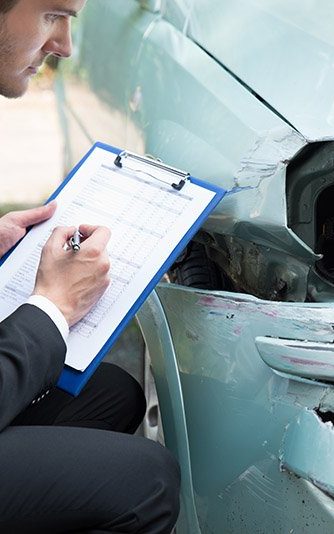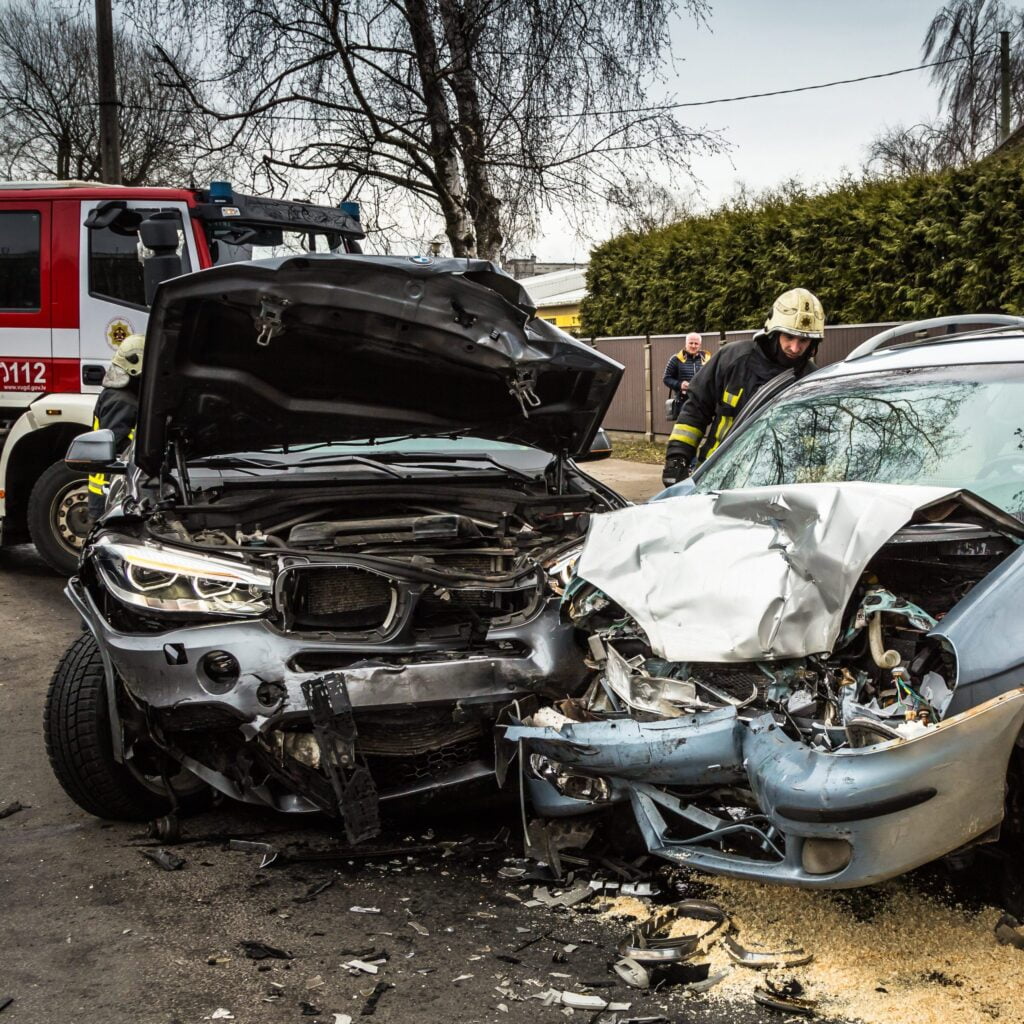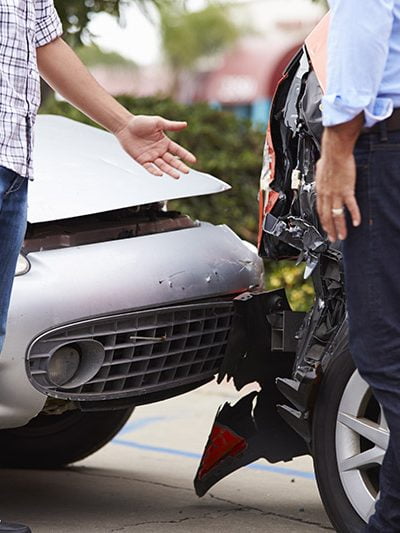A step-by-step guide if you have been in a car accident
If you don’t feel you’re properly being advocated for or that you want a professional to help you through the process to ensure you get the recovery solutions you deserve, you should contact a personal injury attorney to help evaluate your claim.

1. Check yourself and your passengers for injuries. If it’s safe and possible to do so, move your car to the side of the road where it is out of the way from additional potential danger or exit your vehicle and move to a sidewalk or location out of the line of traffic.
2. Turn off your engine, turn on your hazards or use road flares to warn other of the collision, and call the police.
3. Exchange car insurance information with the other party and take photos of the damage to all vehicles involved. The most important information to gather includes:
- Full name and contact information
- Insurance company and policy number
- Driver’s license and license plate number
- Type, color and model of the other vehicle(s)
- Location of the accident and Name and contact information of any witnesses to the accident
4. Be truthful with your exchange of information, even if you think you may be partially at fault, but don’t offer opinions as to what happened in the heat of the moment. You need time to process what happened first and the adrenaline of the accident won’t allow you to think clearly.
5. Present to a medical provider to have your injuries properly evaluated. Not only is this the best choice for your personal health but it could also prove valuable later when dealing with an insurance claim since sometimes insurers look at a person’s lack of medical treatment immediately after the accident as an indication that they were not injured, which is too often not the case.
I felt OK after the car accident but I woke up and now I am sore, why?
This is an all too common phenomenon. Immediately after an accident, even if you don’t realize it, your body could be in shock. This is your body’s protective response to the unexpected and significant impact it underwent. Additionally, there is often an adrenaline surge that blocks the pain temporarily. Neither shock nor adrenaline will mask severe injuries and pain but they do mask the most common soft tissue injuries. In fact, for the most common post-accident injuries, the pain doesn’t manifest itself until the healing process has begun an hour, a day, or even a week after the accident. This delayed pain and soreness comes from acute inflammatory reaction from damaged tissue.
I’ve been in a car accident in a private parking lot, they won’t determine fault. What are my options?


Parking lot accidents are essentially no different from accidents elsewhere. However, many commercial parking lots lack the same road signs we are familiar with on state-run roads and highways. That being said, the rules of the road still apply. Again, it’s always recommended to call the police first so that they can generate a report and help determine fault.
If police weren’t called and you’re having an issue now with determining fault, the first option you have is to get your insurance involved. They will work with the other driver or that driver’s insurer to try to resolve the matter after you provide a statement to them. It’s still best to stick to the facts and leave opinions and theories as to fault out of this statement – leave that work up to your insurance adjuster.
Finally, if you don’t feel you’re properly being advocated for, that your claim is worth more than you’re being offered, or that you want a professional to help you through the process to ensure you get what you deserve, you should contact a personal injury attorney to help evaluate your claim.
Why do I need a Personal Injury attorney for settling a claim?
A personal injury attorney already knows the personal injury laws and procedural rules. S/he also has experience dealing with insurance companies and even individual insurance adjusters, which means they know what information is important, what information is relevant, and what remedies are available to ensure that the resolution of your claim is adequate and fair. A personal injury lawyer acts as your advocate throughout the entire process and has the time, the experience, and the resources to face a big auto insurance company and its team of lawyers.
Should I talk to the other driver’s insurance company?


You must keep in mind that the other driver’s insurance has a duty to advocate for their insured and a financial interest in reducing your claim amount in any way possible. That being said, the other driver’s insurance (third party insurance) is going to need certain information to move your claim forward. Again, stick with the facts and leave out any personal opinions as to what happened. And remember, you don’t just have to accept the offer they present to you to settle your claim. If you don’t think it’s fair, you can reject it and your best option for the most equitable remedy would be doing your own research as to the fair value of your vehicle and property damage or getting a lawyer involved who can estimate your future medical needs related to the accident. If you retain a lawyer to represent you, communication with the third party insurance will likely be conducted solely through your attorney’s office.
How long typically does a claim take after the accident happens?
This always varies. If you’re only dealing with a property loss claim, the process typically moves more swiftly. When injuries and medical treatment are involved it’s usually in the best interest of the injured party to wait until treatment is concluded or the end of treatment is foreseeable. Otherwise, it’s difficult to assess the full extent of your injuries and what future care may be necessary so you don’t have to cover expenses at a later date out of your own pocket.
